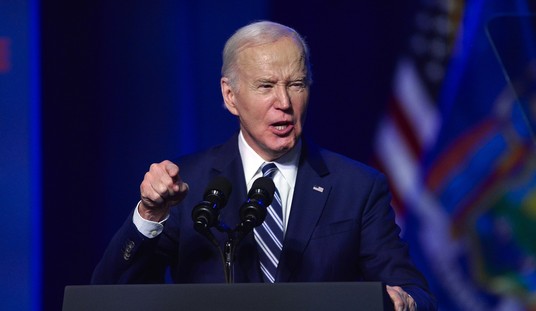
Russian President Vladimir Putin listens to U.S. President Donald Trump at the beginning of a one-on-one-meeting at the Presidential Palace in Helsinki, Finland, Monday, July 16, 2018. (AP Photo/Pablo Martinez Monsivais)
The Wall Street Journal has learned that, in the days following the accidental explosion at a northwestern Russian missile test site on August 8th, the two closest monitoring stations “went silent.”
In an email to the Journal, Lassina Zerbo, the head of the Comprehensive Nuclear Test Ban Treaty Organization, wrote that two days after the explosion, the monitoring stations in Kirov and Dubna “stopped transmitting data.” The stations had been “contacted immediately about the data disruption and Russian officials responded that they were experiencing “communication and network issues.”
Zerbo added, “We are pending further reports on when the stations or the communication system will be restored to full functionality.”
My colleague, Streiff, posted on this story here and here.
The first report from Russia’s state-controlled nuclear agency, Rosatom, called the incident a rocket engine explosion and said that five workers had been killed. Two days later, Rosatom acknowledged that the “explosion occurred on an offshore platform during tests of a “nuclear isotope power source,” and that five nuclear engineers had been killed and three, wounded.
Little by little, information began to trickle in. The Guardian reported that “radiation levels in Severodvinsk, a nearby city, increased 20 times above normal for about a half hour after the explosion.” Then, it was reported by a correspondent from the Israeli public broadcasting corporation, Amichai Stein, that “Locals in the Russian city of Severodvinsk have been told to take iodine tablets and stay indoor after massive explosion days ago. Residents only told an ‘incident’ took place.”
Kirov and Dubna are “part of an international network of hundreds of stations set up to verify compliance with the Comprehensive Nuclear Test Ban Treaty, which prohibits nuclear weapons tests globally.” Although the treaty has not been ratified yet, Russia claims they are “strictly observing the accord.”
According to the Journal:
The stations are designed to monitor everything from seismic shifts to sound waves for signs of nuclear activity. The two stations that went silent in Russia are designed to measure radioactive particles in the atmosphere, according to the treaty organization’s website.
Arms-control experts said the monitoring problem appears to be a Russian effort to conceal information about the accident and not an effort to hide evidence of a prohibited nuclear weapons test.
Daryl Kimball, the executive director of the Arms Control Association, a nongovernmental organization promoting arms-control policies told the Journal:
It is a very odd coincidence that these stations stopped sending data shortly after the Aug. 8 incident.
It is probably because they want to obscure the technical details of the missile-propulsion system they are trying and failing to develop. But this is not a legitimate reason to cut off test-ban monitoring data transmissions.
It’s no surprise that Russia has been less than candid about the blast which many guess was the test of a nuclear-powered missile. President Trump believes it “involved an advanced nuclear-powered cruise missile, which has been dubbed Skyfall by the North Atlantic Treaty Organization, and which Russia calls Burevestnik.” In a tweet, Trump wrote that “the U.S. is learning from the missile explosion and said the U.S. has more advanced technology but did not elaborate.”













Join the conversation as a VIP Member